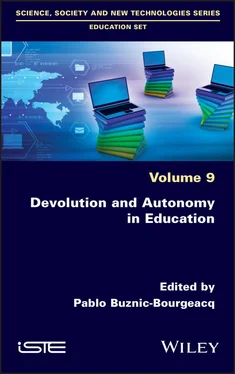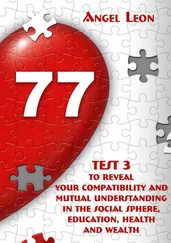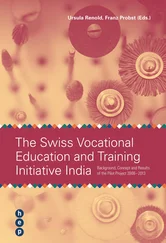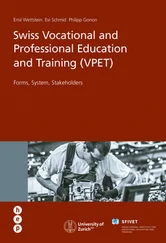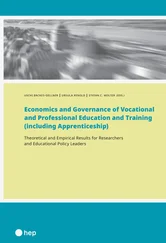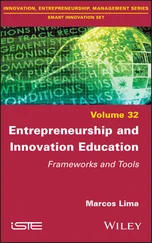1 Cover
2 Title Page Education Set coordinated by Angela Barthes and Anne-Laure Le Guern Volume 9
3 Copyright First published 2021 in Great Britain and the United States by ISTE Ltd and John Wiley & Sons, Inc. Apart from any fair dealing for the purposes of research or private study, or criticism or review, as permitted under the Copyright, Designs and Patents Act 1988, this publication may only be reproduced, stored or transmitted, in any form or by any means, with the prior permission in writing of the publishers, or in the case of reprographic reproduction in accordance with the terms and licenses issued by the CLA. Enquiries concerning reproduction outside these terms should be sent to the publishers at the undermentioned address: ISTE Ltd 27-37 St George’s Road London SW19 4EU UK www.iste.co.uk John Wiley & Sons, Inc. 111 River Street Hoboken, NJ 07030 USA www.wiley.com © ISTE Ltd 2021 The rights of Pablo Buznic-Bourgeacq to be identified as the author of this work have been asserted by him in accordance with the Copyright, Designs and Patents Act 1988. Library of Congress Control Number: 2021936092 British Library Cataloguing-in-Publication Data A CIP record for this book is available from the British Library ISBN 978-1-78630-698-2
4 Foreword
5 Introduction
6 PART 1: Didactics and Devolution: Specificities of Disciplines and Audiences PART 1 Didactics and Devolution: Specificities of Disciplines and Audiences
1 Potential of Peer-to-Peer Research and Proof Situations in Mathematics Classes and Devolutions
1.1. Introduction 1.2. Characteristics of PRP situations
1.3. Potential of PRP situations and management of devolution processes
1.4. Two examples of analysis of problems with potentials
1.5. Conclusion
1.6. Appendix: solution to the rectangle problem
1.7. References
2 Some Comparative Analysis of Mathematics and Experimental Science
2.1. Introduction
2.2. Didactics of mathematics, didactics of science: contrasting epistemological choices
2.3. Devolution versus appropriation
2.4. Investigative approach, a devolution process?
2.5. Specificity of scientific learning
2.6. Conclusion: what is the outcome of the redeployment of the subject?
2.7. References
3 Double Devolution of Action in Physical Education
3.1. Introduction 3.2. The current state of the notion of devolution in didactic writings in PE
3.3. The “veiled” presence of a double devolution of action in PE didactics
3.4. An “adaptive” backdrop in the didactic concepts of PE
3.5. An adoptive and organological perspective for the double devolution of action in physical education
3.6. From adaptation to adoption “by the double”; a few examples
3.7. Conclusion
3.8. References
4 Information and Communication Technology (ICT) in Education: An Issue that is Still Relevant Today
4.1. Introduction 4.2. Theoretical framework, devolution and digital in schools
4.3. Research field and methodology
4.4. Analysis of results
4.5. Conclusion
4.6. References
5 Reflection on the Devolution of Knowledge in French Kindergarten Teaching: Worksheets
5.1. Introduction 5.2. Contextualization and issues
5.3. Theoretical framework of the devolution of knowledge in kindergarten and the use of worksheets
5.4. Theoretical framework of devolution in French teaching
5.5. Analysis and discussion
5.6. Conclusion
5.7. References
6 Between a Willingness to Adapt and Real Devolution, what Material Works for which Form of Learning? A Case Study in a Localized Unit for Inclusive Education (Ulis)
6.1. Introduction 6.2. Theoretical frameworks
6.3. Methodology
6.4. Case study: Mathieu, teacher specializing in Ulis
6.5. Analysis and discussion
6.6. References
7 PART 2: Devolution Beyond Disciplinary Didactics
7 Before “Devolution”
7.1. Introduction 7.2. Preliminary remarks
7.3. Michel de Montaigne
7.4. Alain
7.5. Conclusion
7.6. References
8 Devolution and Problematization Among Trainee School Teachers: What Kind of Appropriation is There?
8.1. Introduction 8.2. Theoretical framework
8.3. Some results from the appropriation of this approach and these devolutions among new school teachers
8.4. Conclusion and discussion
8.5. References
9 Professional Writing as a Complex Space in Devolution
9.1. Introduction 9.2. Devolving a storytelling space–time
9.3. Developing fiction writing
9.4. Devolving the text as a space for mutual understanding
9.5. Storytelling as the devolution of a professional teaching space
9.6. Conclusion
9.7. References
10 The Subject Area: Devolving One’s Own Trials
10.1. Devolving oneself
10.2. Trials as a subject area
10.3. Devolving your own trials: the passionate subject and the good teacher
10.4. Teaching about trials, maintaining the passion
10.5. References
11 A Game to Play and a Game Played: A Devolution “Under Influences”
11.1. Introduction 11.2. Thèque: a game to be played in extracurricular activity periods
11.3. A theoretical framework for thinking about the devolution of a game and the associated methodological approach
11.4. Jules’ influence on devolved games
11.5. Conclusion: towards a theory of game devolution
11.6. References
8 List of Authors
9 Index
10 End User License Agreement
1 Chapter 1 Figure 1.1. The rectangle problem: how many rectangles are there in this rectang...
2 Chapter 6Figure 6.1. Thinking about the transmission of knowledge from teaching/learning ...Figure 6.2. Geometric figure to be reproduced (session 1) Figure 6.3. Pupil productions (session 1) Figure 6.4. Pupil worksheet
3 Chapter 8Figure 8.1. Problematization diamond and devolutions (from Fabre and Musquer (20...
4 Chapter 9Figure 9.1. A complex space of devolution. For a color version of this figure, s...
5 Chapter 11Figure 11.1. Example of a spatial organization of the game of thèque3. For a col...
1 Chapter 1 Table 1.1. The rectangle problem has 36 solutions
2 Chapter 6Table 6.1. Session synopsis
3 Chapter 8Table 8.1. Function of the different deviations from the phases of problematizat...Table 8.2. Discourse/reasoning of students related to the different devolutions ...Table 8.3. Three trends in terms of ownership of the various devolutions
1 Cover
2 Table of Contents
3 Title Page Education Set coordinated by Angela Barthes and Anne-Laure Le Guern Volume 9
4 Copyright First published 2021 in Great Britain and the United States by ISTE Ltd and John Wiley & Sons, Inc. Apart from any fair dealing for the purposes of research or private study, or criticism or review, as permitted under the Copyright, Designs and Patents Act 1988, this publication may only be reproduced, stored or transmitted, in any form or by any means, with the prior permission in writing of the publishers, or in the case of reprographic reproduction in accordance with the terms and licenses issued by the CLA. Enquiries concerning reproduction outside these terms should be sent to the publishers at the undermentioned address: ISTE Ltd 27-37 St George’s Road London SW19 4EU UK www.iste.co.uk John Wiley & Sons, Inc. 111 River Street Hoboken, NJ 07030 USA www.wiley.com © ISTE Ltd 2021 The rights of Pablo Buznic-Bourgeacq to be identified as the author of this work have been asserted by him in accordance with the Copyright, Designs and Patents Act 1988. Library of Congress Control Number: 2021936092 British Library Cataloguing-in-Publication Data A CIP record for this book is available from the British Library ISBN 978-1-78630-698-2
Читать дальше
